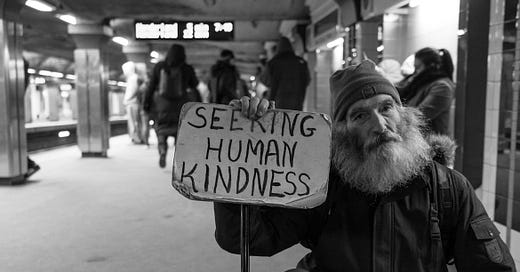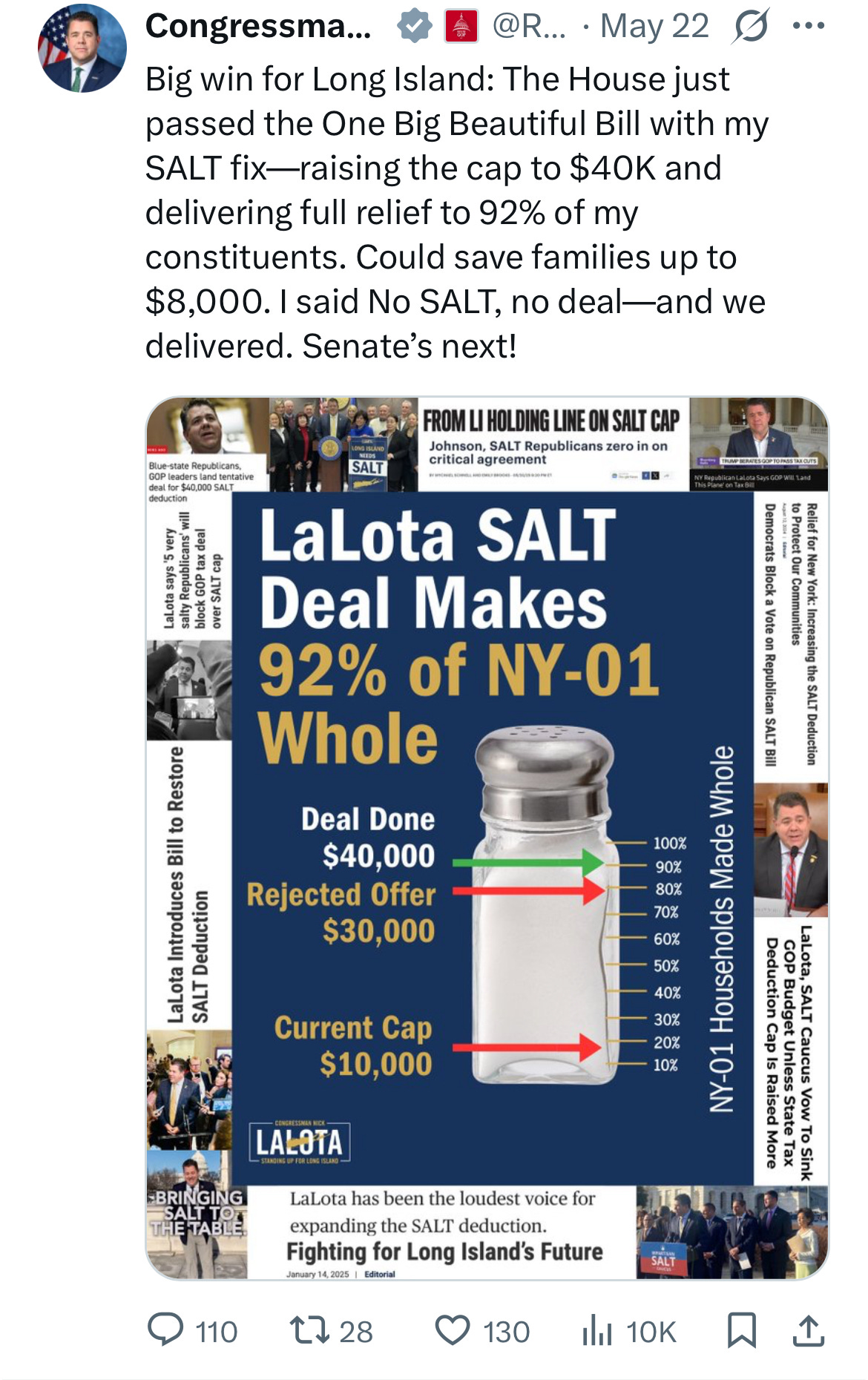Moderate Republicans Who Approved Budget Bill Now Are Lying To Justify Vote
Legislation that would slash Medicaid and food assistance now moves to the Senate
Although its passage is being hailed as a huge victory for Donald Trump and Republican Speaker Mike Johnson, their so-called “Big, Beautiful Bill” was approved by the narrowest of margins.
At 215-214, they couldn’t have lost even one more Republican lawmaker and gotten their budget plan across the finish line.
That means the bill only passed due to the support of a number of so-called Republican “moderates” — including those in districts which voted for Democrat Kamala Harris in last year’s presidential election.
The Republican legislation is a massive package that would make bone-deep cuts to government programs like Medicaid and SNAP, which provides healthcare and food assistance respectively to tens of millions of Americans in order to fund a new round of tax cuts tilted mostly towards the wealthiest Americans and large corporations.
Facing the wrath of voters back home, these swing-district, “moderate” Republicans have immediately begun not only making excuses — but outright lying to their constituents.
A few — particularly those from New York — focused exclusively on the concession of a larger exemption for state and local taxes (SALT) they won in exchange for their votes.
But their statements after the vote almost entirely ignored the words “Medicaid” and “SNAP,” which is the federal food assistance program slashed under the legislation.
Such was the case with Rep Nick LaLota, who represents a district centered on Long Island.
“Big win for Long Island: The House just passed the One Big Beautiful Bill with my SALT fix—raising the cap to $40K and delivering full relief to 92% of my constituents. Could save families up to $8,000. I said No SALT, no deal—and we delivered. Senate’s next!” he posted on his social media.
Elsewhere, though, Republicans couldn’t ignore the impacts on Medicaid and SNAP for their constituents.
And there, they just made positive-sounding claims — and often ones not at all based in fact.
Rep Jen Kiggans, a Republican who represents a swing district around Virginia Beach, Va, that has a large military and naval presence, offered this vague and somewhat misleading statement:
I voted YES to the “Big, Beautiful Bill” this morning because this budget reconciliation puts people first by protecting Medicaid for vulnerable families, delivering tax relief and childcare credits to working Virginians, investing in our servicemembers and shipbuilders, and cutting wasteful spending. This is what Americans voted for in November … and Congress is delivering …!”
Others, like Rep Don Bacon, of Nebraska and who represents an Omaha-based district, for example, released statements that were misleading to downright false.
Bacon’s read:
“No expectant mothers, single parents, children, disabled, or elderly are losing SNAP or Medicaid benefits. That misinformation is being spread to try and scare people.
“By passing this bill, we will strengthen these programs through an audit of the programs, removal of those who should not be receiving benefits, and making sure that able-bodied adults without dependents are fulfilling work and volunteer requirements that are already in place for the program. Those who are eligible for Medicaid and SNAP are not touched by this bill. We protected those who need Medicaid and SNAP.“
Except that’s not really true.
Estimates, including by their own Congressional Budget Office (CBO) say that millions of Americans will lose access to Medicaid and SNAP.
The proposals would strip Medicaid coverage from more than 10 million people over 10 years, though some are expected to find health insurance elsewhere, such as through their jobs or the Affordable Care Act exchanges, according to an earlier CBO analysis released last week. Overall, an additional 7.6 million Americans are projected to be uninsured in 2034 because of the Medicaid provisions.
And 11 million people would be at risk of losing their nutrition assistance.
“We’ve never in history experienced coverage cuts of this size, and that makes it really difficult to predict how states, providers and patients will respond,” Alice Burns, an associate director of Program on Medicaid and the Uninsured at KFF, a nonpartisan health policy think tank, told a CNN reporter. “For the past 50 years, there have been these incremental increases in the availability and access to health care and health insurance coverage. So moving backwards and taking coverage away … This isn’t something we’ve seen before.”
The bill now advances to the Senate for consideration.
Please support our work…
Please subscribe…





